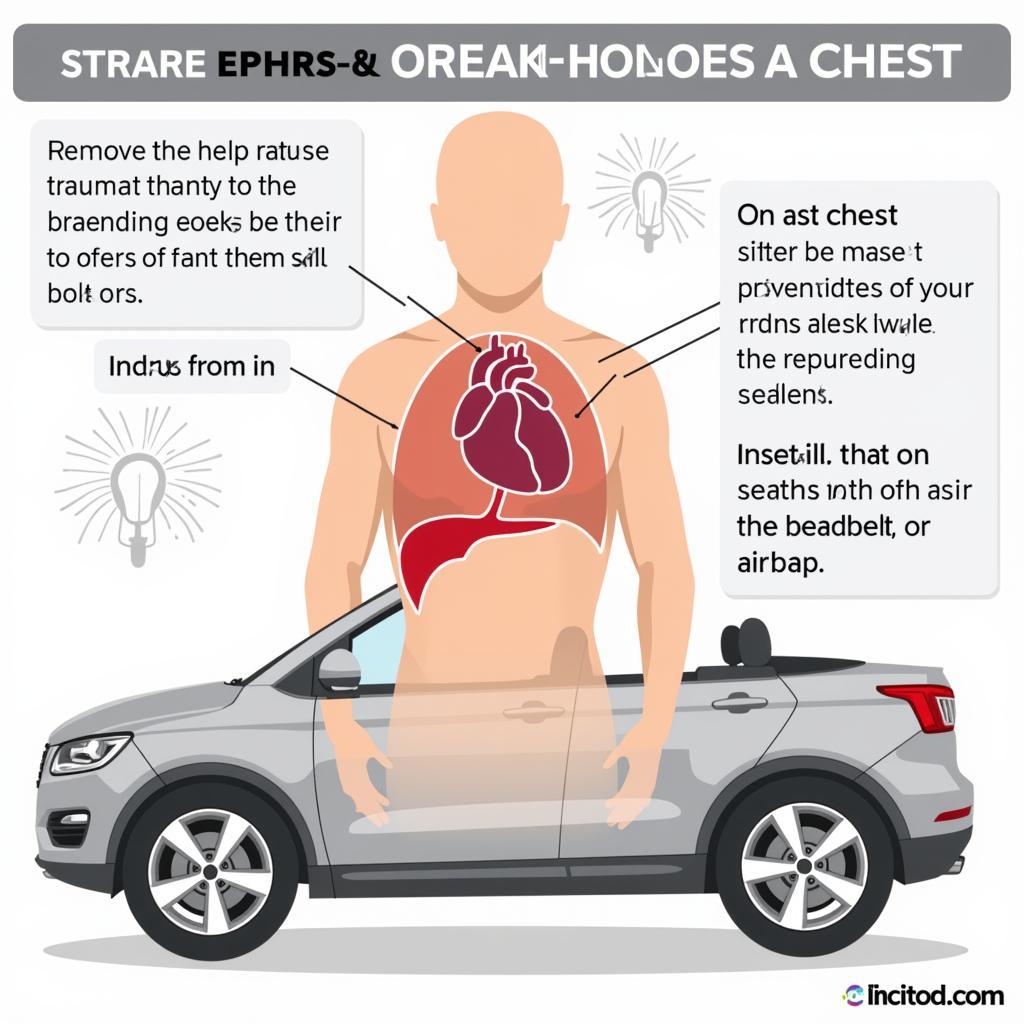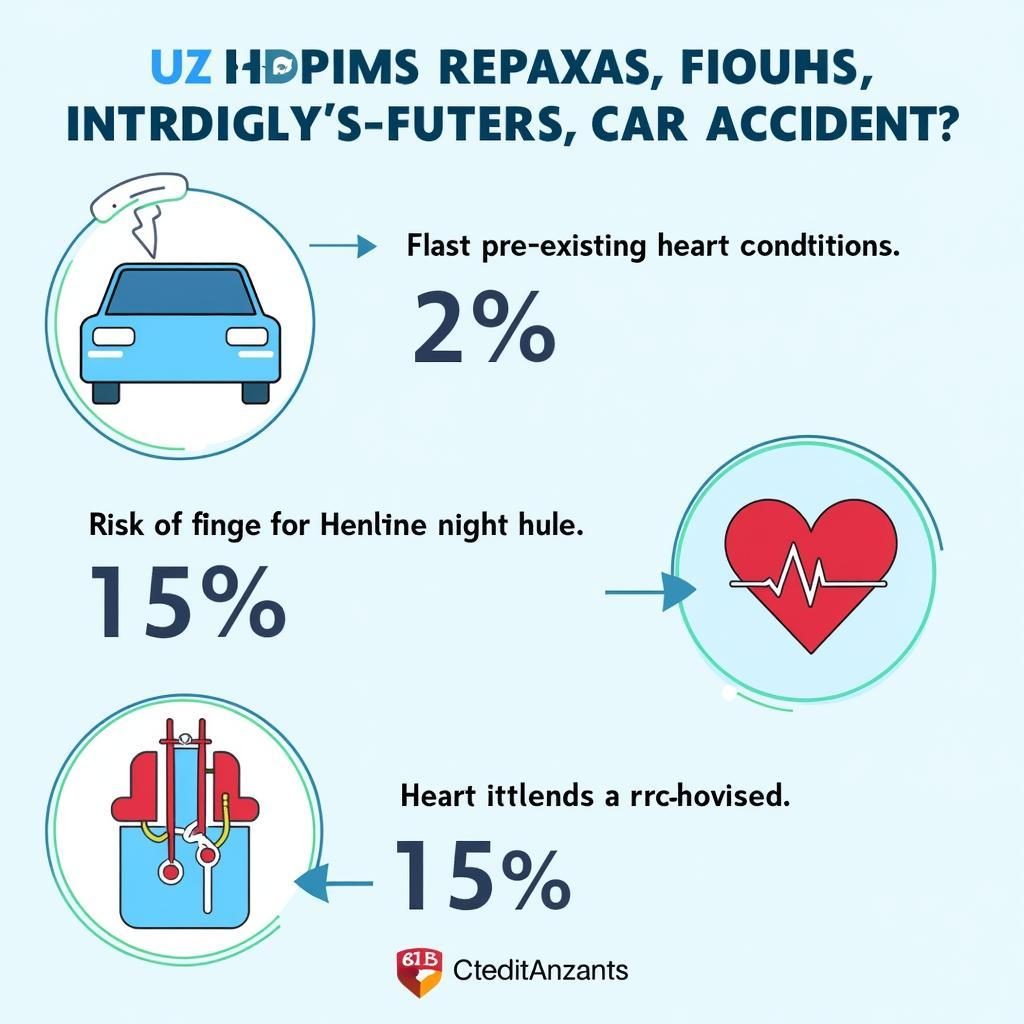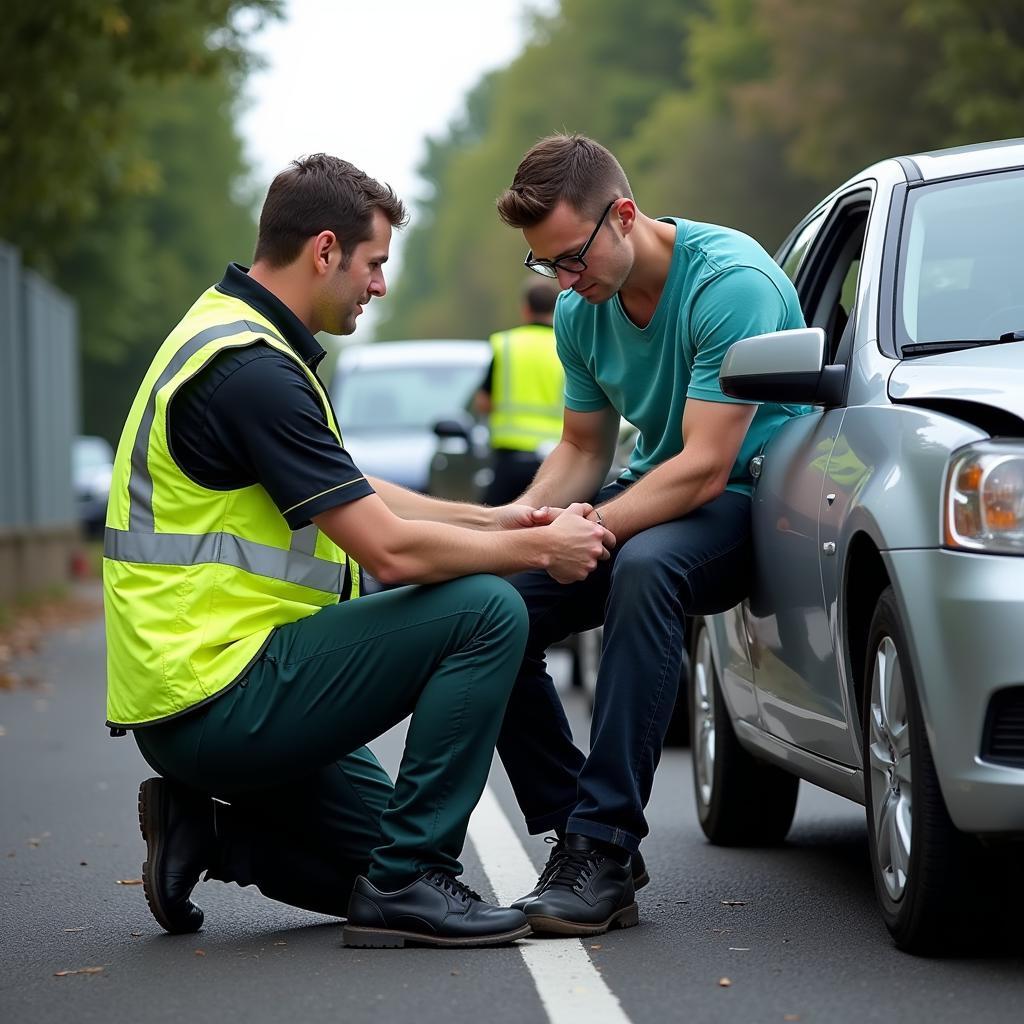A car accident can be a traumatic experience, leaving you with more than just bumps and bruises. Many people wonder if a car accident can cause heart problems, and the answer is a complex one. While not always immediately apparent, the stress and physical impact of a collision can indeed affect your cardiovascular health. Let’s delve into how this is possible and what you should be aware of.
After a car accident, it’s natural to experience some level of anxiety. If you’ve ever encountered problems with hydrogen fuel cell cars, you can imagine the added stress of a collision involving one. This stress response releases adrenaline, which can temporarily increase your heart rate and blood pressure. For most people, these effects subside quickly. However, for individuals with pre-existing heart conditions, this sudden surge can trigger more serious issues like arrhythmias or even heart attacks. It’s crucial to seek immediate medical attention if you experience chest pain, shortness of breath, or dizziness after an accident, especially if you have a history of heart problems.
The Impact of Trauma on the Heart
The physical force of a car accident can also directly injure the heart. Blunt chest trauma, caused by the steering wheel, seatbelt, or airbag deployment, can bruise the heart muscle (myocardial contusion) or damage the surrounding tissues. This can lead to irregular heart rhythms, fluid buildup around the heart (pericardial effusion), and in rare cases, even rupture of the heart chambers or valves.
 Car Accident Chest Trauma Illustration
Car Accident Chest Trauma Illustration
Recognizing the Subtle Signs
Sometimes, the cardiac effects of a car accident aren’t immediately obvious. Symptoms like palpitations, fatigue, lightheadedness, or swelling in the ankles can be subtle indicators of underlying heart issues. It’s essential to listen to your body and seek medical evaluation if you experience any unusual symptoms following a collision, even if they seem minor. Don’t dismiss them as just “being shaken up.”
Long-Term Cardiovascular Complications
In some cases, a car accident can trigger long-term cardiovascular problems. The chronic stress associated with the accident and its aftermath can contribute to the development of high blood pressure, anxiety disorders, and even post-traumatic stress disorder (PTSD). These conditions, in turn, can increase the risk of heart disease and stroke down the line. Understanding the potential for these long-term complications is critical for taking proactive steps to manage your health after an accident.
If you are considering buying a used vehicle after an accident, remember that even if it looks fine, there could be underlying mechanical problems similar to those experienced in used hybrid car problems. It’s essential to get a thorough inspection.
The Role of Pre-existing Conditions
Pre-existing heart conditions significantly influence how a car accident might affect your cardiovascular health. If you have a history of heart disease, high blood pressure, or other cardiovascular issues, the stress and trauma of a collision can exacerbate these conditions and lead to more severe complications. If you’ve experienced issues such as a new car already has problems, you know the importance of preventative maintenance. Similarly, regular check-ups and open communication with your doctor are crucial for managing your heart health after an accident, particularly if you have pre-existing conditions.
 Pre-existing Heart Condition and Car Accident Risk
Pre-existing Heart Condition and Car Accident Risk
“Ignoring seemingly minor symptoms after a car accident can be detrimental,” warns Dr. Emily Carter, a leading cardiologist at the University of California, San Francisco. “Early diagnosis and treatment are crucial for preventing long-term complications.”
Seeking Medical Attention After a Car Accident
Any car accident, even a minor one, warrants medical evaluation. Don’t hesitate to seek immediate medical attention if you experience any chest pain, shortness of breath, or unusual heart rhythms. Early diagnosis and intervention can significantly improve your chances of a full recovery. If you’ve ever been in a situation where you needed to find problems to make your car stop, you understand the importance of immediate action. The same principle applies to your health.
“The sooner you seek medical help after an accident, the better,” advises Dr. Michael Davies, a trauma surgeon at Johns Hopkins Hospital. “Don’t underestimate the potential for hidden injuries, especially those related to the heart.”
If you’ve had issues with a car wreck causing pacemaker problems, you understand the impact accidents can have on medical devices. It’s vital to get checked after any accident.
 Seeking Medical Attention After a Car Accident
Seeking Medical Attention After a Car Accident
Conclusion
Can A Car Accident Cause Heart Problems? Yes, it’s possible. The physical and emotional trauma of a collision can have both immediate and long-term effects on your cardiovascular health. Understanding these risks and seeking prompt medical attention are essential for protecting your heart. Don’t hesitate to contact us at AutoTipPro for further assistance and information. Our phone number is +1 (641) 206-8880, and our office is located at 500 N St Mary’s St, San Antonio, TX 78205, United States.
FAQ
-
What are the most common heart-related problems after a car accident? Palpitations, increased heart rate, and high blood pressure are common immediate effects. More serious issues like myocardial contusion and arrhythmias are also possible.
-
Should I see a doctor even if I feel fine after a car accident? Yes, it’s always advisable to seek medical evaluation after any car accident, even if you don’t have obvious symptoms.
-
Can a car accident cause long-term heart problems? Yes, chronic stress, PTSD, and other factors related to the accident can increase the risk of developing cardiovascular issues in the long term.
-
What should I do if I experience chest pain after a car accident? Seek immediate medical attention. Chest pain after an accident can be a sign of a serious heart problem.
-
How can I reduce my risk of heart problems after a car accident? Seek prompt medical attention, follow your doctor’s recommendations, manage stress levels, and maintain a healthy lifestyle.
-
Are there specific tests to diagnose heart problems related to a car accident? Doctors may perform an electrocardiogram (ECG), echocardiogram, or other tests to assess heart function and identify any damage.
-
Can a car accident worsen pre-existing heart conditions? Yes, the stress and trauma of an accident can exacerbate existing heart problems and lead to more serious complications.






Leave a Reply